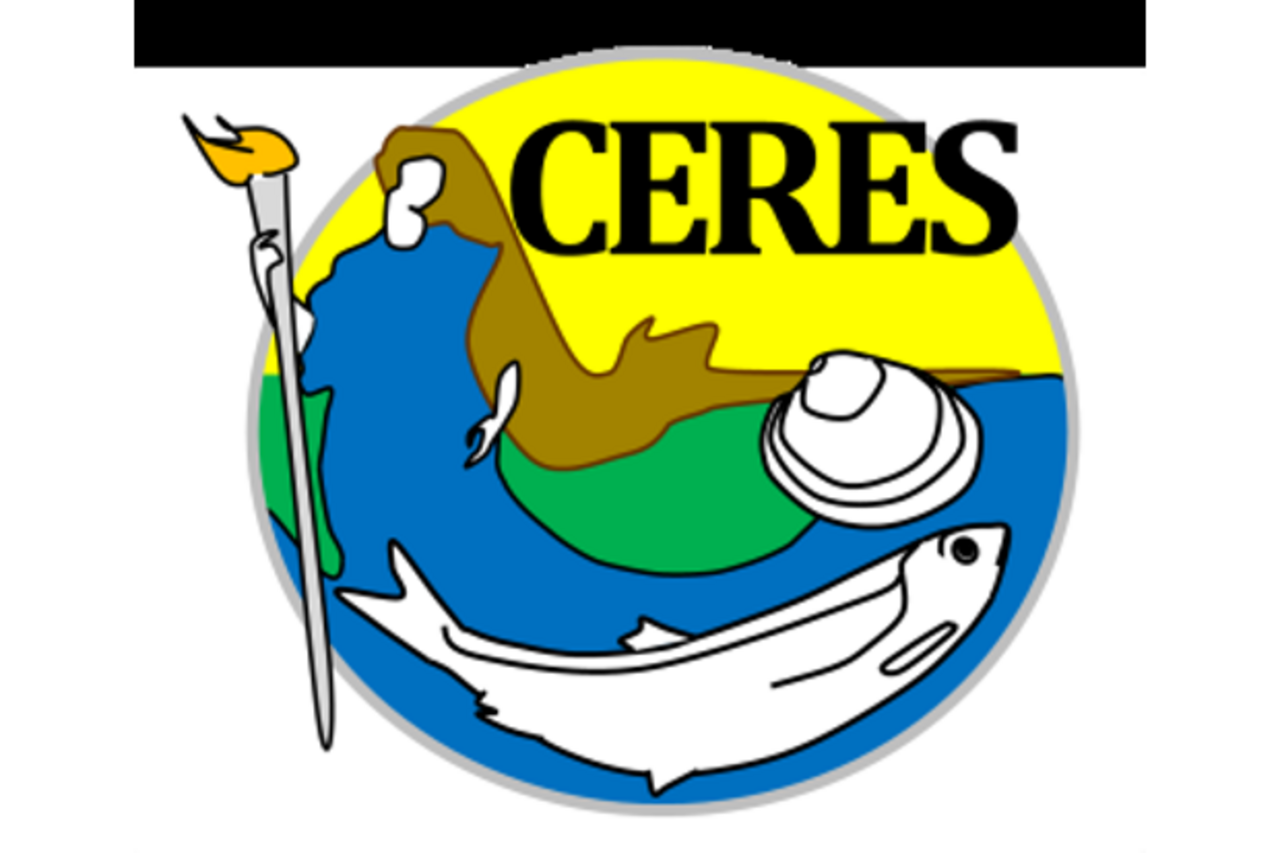Project
How do aquatic resources and their users adapt to climate change? (CERES)

Climate change and European aquatic RESources
CERES advances a cause-and-effect understanding of how future climate change will influence Europe’s most important fish and shellfish populations, their habitats and the economic activities dependent on these species. CERES will involve and closely cooperate with industry and policy stakeholders to define policy, environment, social, technological, law and environmental climate change scenarios to be tested.
Background and Objective
Global warming and climate change are likely to affect all biosphere components, including the functioning of aquatic ecosystems and their organisms. Given the significant increase in human population (15% by 2024, 35% by 2050) and demand for secure, sufficient and safe food supplies, it is critical to predict and anticipate the nature and magnitude of potential impacts of climate change on food production, including marine-based. By working with the industries concerned CERES will help develop innovative adaptation and mitigation strategies to enhance resilience to perceived threats, and to facilitate access to opportunities (the ‘blue growth’ agenda). Providing short-, medium- and long-term projections for aquatic ecosystems and the threats and opportunities for industries that rely on these is not an easy task, and requires our transdisciplinary team of oceanographers and hydrologists, modellers, ecologists, aquatic physiologists, social scientists, economists, fishers and fish/shellfish farmers working in conjunction with managers. Detailed mechanistic understanding and complex models must be employed to incorporate the workings of these industries as well as global seafood markets and policy landscapes. The EU requires fishing to be environmentally sustainable, economically viable and socially acceptable to provide long-term European food security given prevailing and future climatic conditions. EU Policies, intended to also boost aquaculture and Strategic Guidelines, have been published outlining common priorities and general objectives. Climate change will affect the capacity to achieve these ambitions and a greater understanding is urgently needed to ensure that management measures remain appropriate and achievable.
Target Group
Fisheries and aquaculture sector
Approach
Objectives and approach of the CERES project in general and the tasks of TI-SF:
- Provide regionally relevant short-, medium- and long-term future, high-resolution projections of key environmental variables for European marine and freshwater ecosystems;
- Integrate the resulting knowledge on changes in productivity, biology and ecology of wild and cultured animals (including key indirect / food web interactions), and ‘scale up’ to consequences for shellfish and fish populations, assemblages as well as their ecosystems and economic sectors;
- Utilize innovative risk-assessment methodologies that encompass drivers of change, threats to fishery and aquaculture resources, expert knowledge, barriers to adaptation and likely consequences if mitigation measures are not put in place;
- Anticipate responses and assist in the adaptation of aquatic food production industries to underlying biophysical changes, including developing new operating procedures, early warning methods, infrastructures, location choice, and markets; Create short-, medium- and long-term projections tools for the industry fisheries as well as policy makers to more effectively promote blue growth of aquaculture and fisheries in different regions;
- Consider market-level responses to changes (both positive and negative) in commodity availability as a result of climate change; Formulate viable autonomous adaptation strategies within the industries and for policy to circumvent/prevent perceived risks or to access future opportunities;
- Effectively communicate these findings and tools to potential end-users and relevant stakeholders.
The CERES Project is structured into 7 work packages (WP): WP1 (Drivers & Scenarios), WP2 (Fisheries), WP3 (Aquaculture), WP4 (Economic Anlyses), WP5 (Risks, Vulnerabilities & Solutions), WP6 (Communications) and WP7 (Project management). The Thünen Institute of Sea Fisheries is leading WP 4 with the objective to project challenges and opportunities of climate change in the fisheries and aquaculture sectors. The economic unit will adapt the bio-economic model FishRent for the long distant pelagic fleet in the North East Atlantic to analyze scenarios coming from inputs from WP 2 on the changes in the fish stocks. Afterwards, we will develop proposals how the long-distance fleet can adapt to the changing conditions and which challenges the managers will face (e.g. if fish stocks move north). Additionally, the economic research unit will apply the typical farm approach from agri benchmark fish for additional species (especially salmon and sea bass) and will collect data from additional countries for trout. With the help of these data we will as well analyze challenges and opportunities of climate change and develop proposal how the aquaculture sector can adapt to the changes. The Thünen Institute of Sea Fisheries is also involved in WP5 which will analyse climate change induced risks and opportunities for European fisheries and aquaculture as well as potential solutions based on the previous work of work packages 1-4. Specifically, the TI will use spatially- explicit Baysian statistics (Baysian Belief Networks) to quantify identified risks and opportunities using generated data and expert opinion.
Results
Synthesis report available at: https://www.fdr.uni-hamburg.de/record/804#.XrlUBi77RaQ
Links and Downloads
www.uni-hamburg.de/en/presse/pressemitteilungen/2016/pm16.html
Thünen-Contact

Involved Thünen-Partners
- Kraus, GerdSF Institute of Sea Fisheries
- Kraus, GerdSF Institute of Sea Fisheries
- Kreiß, CorneliaFI Institute of Fisheries Ecology
- Kreiß, CorneliaFI Institute of Fisheries Ecology
- Lasner, TobiasFI Institute of Fisheries Ecology
- Rambo, HenrikeSF Institute of Sea Fisheries
- Rybicki, SandraSF Institute of Sea Fisheries
- Simons, SarahSF Institute of Sea Fisheries
- Stelzenmüller, VanessaSF Institute of Sea Fisheries
Involved external Thünen-Partners
- CEFAS (Centre for Environment, Fisheries & Aquaculture Science)
(Lowestoft, Großbritannien (inkl. Nordirland)) -
Consorzio Nazionale Interuniversitario per le Scienze del Mare (CONISMA)
(Rom, Italien) - Danish Technical University (DTU)
(Kopenhagen, Hirtshals, Charlottenlund, Dänemark) - Hellenic Centre for Marine Research (HCMR)
(Anavisso, Griechenland) -
Instituto Espanol de Oceanografia (IEO)
(Madrid, Spanien) - Institut français de recherche pour l'exploitation de la mer (IFREMER)
(Brest, LHoumeau, Issy-les-Moulineaux, Nantes, Frankreich) - National University of Ireland Galway
(Galway, Irland) - University of Hull (UHULL)
(Hull, Großbritannien (inkl. Nordirland)) - Institute of Marine Research (IMR) / Havforskningsinstituttet (HI)
(Bergen, Tromsø, Norwegen) - Longline Environment Ltd. (LLE)
(London, Großbritannien (inkl. Nordirland)) - Plymouth Marine Laboratory (PML)
(Plymouth, Großbritannien (inkl. Nordirland)) -
Vet-Aqua International
(Oranmore, Irland) - Swedish Meteorological and Hydrological Institute (SMHI)
(Norrköping, Schweden) -
ZACHODNIOPOMORSKI UNIWERSYTET TECHNOLOGICZNY W SZCZECINIE (ZUT)
(Szczecinie, Polen) -
Instituto Portugues do Mar e da Atmosfera (IPMA)
(Lissabon, Portugal) - Stichting Dienst Landbouwkunddig Onderzoeek (SDLO-Alterra) , DLO
(Waggeningen, Niederlande) - INCDDD (Danube Delta National Institute for Research and Development - DDNI)
(Tulcea, Rumänien) - Agencia Estatal Consejo Superior de Investigaciones Científicas (CSIC)
(Madrid, Cordoba, Spanien) - Mersin University (MEU)
(Mersin, Türkei) -
PELAGIC FREEZER TRAWLER ASSOCIATION (PFA)
(Rijswijk ZH, Niederlande) - KILIC DENIZ URUNLERI URETIMI IHRACAT ITHALAT VE TICARET AS (KILIC), KLC
(Deniz, Bodrum Mugla, Türkei) - VisNed/CVO
(Urk, Niederlande) -
Inskie Centrum Rybactwa Spolka z o. o.
(Insko, Polen) -
Sagremarisco - Viveiros de Marisco Lda (SGM)
(Budens, Portugal) -
Universität Hamburg
(Hamburg, Deutschland)
Funding Body
-
European Union (EU)
(international, öffentlich)
Duration
3.2016 - 2.2020
More Information
Funding program: EU – Horizon 2020 – Societal Challenge "Climate Action, Environment, Resource Efficiency and Raw Materials"
Project status:
finished
Publications
- 0
Rambo H, Ospina-Alvarez A, Catalán IA, Maynou F, Stelzenmüller V (2022) Unraveling the combined effects of sociopolitical and climate change scenarios for an artisanal small-scale fishery in the Western Mediterranean. Ecol Soc 27(1):43, DOI:10.5751/ES-12977-270143
- 1
Hamon KG, Kreiß C, Pinnegar JK, Bartelings H, Batsleer J, Catalán IA, Damalas D, Poos JJ, Rybicki S, Sailley SF, Sgardeli V, Peck M (2021) Future socio-political scenarios for aquatic resources in Europe: An operationalized framework for marine fisheries projections. Front Mar Sci 8:578516, DOI:10.3389/fmars.2021.578516
- 2
Rybicki S, Hamon KG, Simons SL, Temming A (2021) Spatio-temporal interactions between Northeast Atlantic Mackerel and its fishery - Simulating different futures. Mar Policy 133:104740, DOI:10.1016/j.marpol.2021.104740

![[Translate to English:] Logo des Bundesministerium für Ernährung und Landwirtschaft](/media/allgemein/logos/BMEL_Logo.svg)